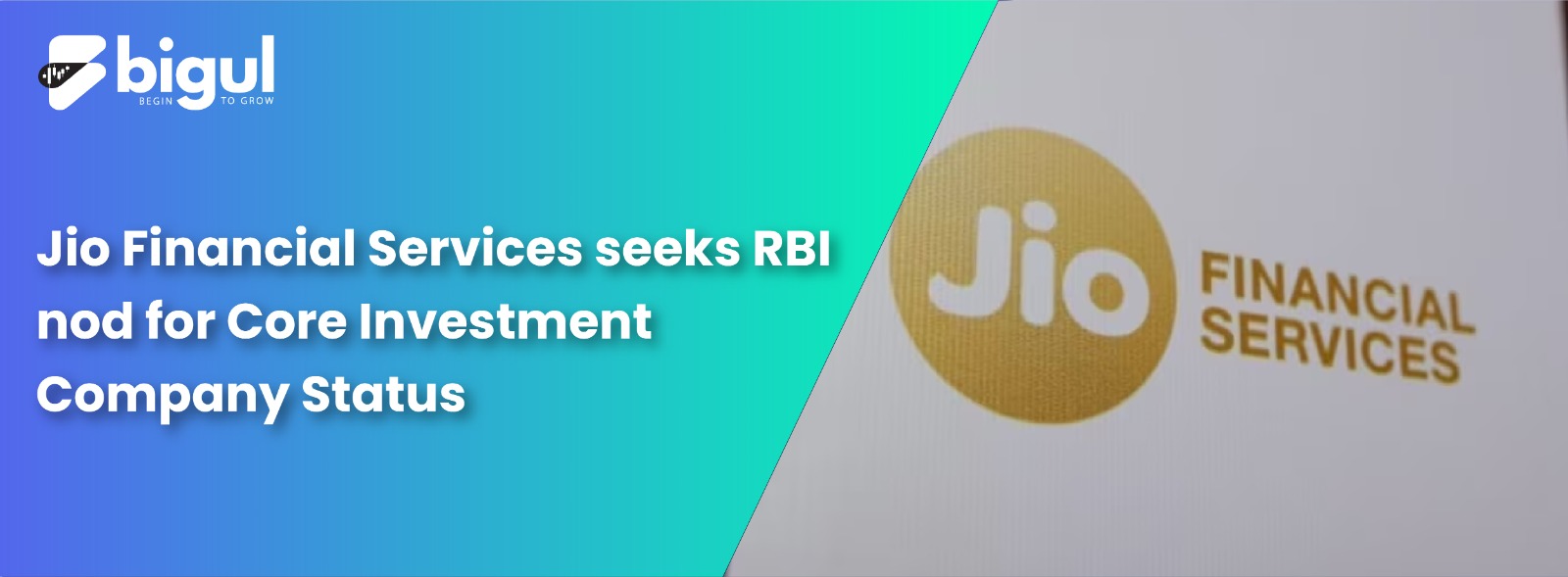Having successfully listed on stock exchanges in August post its carve-out from Reliance Industries Limited (RIL), Jio Financial Services (JFS) aims to modify its shareholding pattern and control in adherence to the RBI (Reserve Bank of India) guidelines. The shift from a Non-Banking Finance Company to a Core Investment Company (CIC) status enables the company to manage its post-demerger financial structure strategically.
CIC Status Defined
Core Investment Companies, as per RBI guidelines, are entities primarily involved in investing in their group entities through equity, preference shares, convertibles, or loans. These companies serve as passive holding entities, focused solely on maintaining control over their group companies without participating in other financial activities.
Financial Performance and Market Presence
JFS has showcased impressive financial results, with its consolidated profit after tax (PAT) doubling sequentially to Rs 668.20 Cr in Q2 FY24. Simultaneously, the operating revenue surged over 61% QoQ to Rs 608 Cr. This financial prowess has positioned JFS as a significant competitor to various fintech startups across segments, including payments, insurance, and asset management.
Strategic Collaborations and Denial of Bond Issuance
Earlier in the year, JFS collaborated with BlackRock, the world’s largest asset management company, to make its mark in India’s mutual fund market. Despite recent reports suggesting a potential fundraising of up to Rs 10,000 Cr through bond issuance, JFS has explicitly denied such claims, asserting its compliance with disclosure obligations under SEBI (Listing Obligations and Disclosure Requirements) Regulations, 2015.
Key Appointments and Diverse Offerings
Recent announcements include the RBI’s approval of key directorial appointments, with Isha Ambani, Anshuman Thakur, and Hitesh Kumar Sethia joining the company’s board. JFS has also diversified its offerings, ranging from personal and merchant lending to insurance and retail payments. The company’s strategic emphasis on a soundbox, among other innovations, underscores its commitment to technological advancement.
Market Dynamics and Future Outlook
In the competitive fintech space, JFS competes with industry giants such as Paytm, PhonePe, BharatPe, PB Fintech, InsuranceDekho, CRED, Zerodha, and Groww. With a forecasted domestic fintech market size of $2.1 Tn by 2030, JFS aims to capitalize on this growth, particularly in lending tech, which is projected to constitute a significant portion at $1.3 Tn with an anticipated 18% CAGR from 2022.
Strategic Vision
JFS is strategically positioning itself in the fintech sector by adopting a direct-to-consumer (D2C) approach. This approach emphasizes cost efficiencies and aims to foster personalized customer interactions, aligning with the evolving demands of the dynamic financial services landscape. As JFS navigates this transformation, its pursuit of CIC status reflects its commitment to regulatory compliance and strategic financial management.
